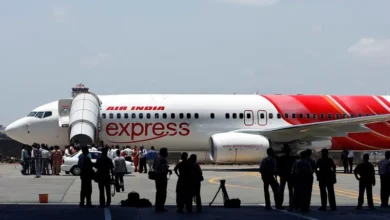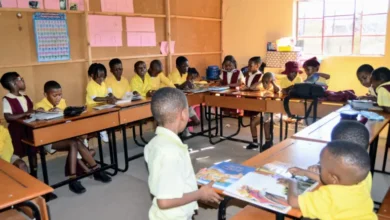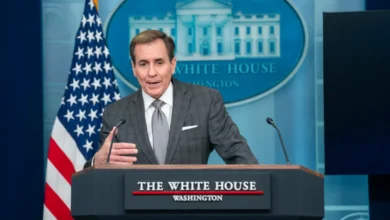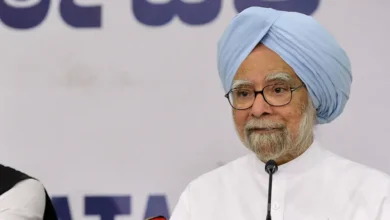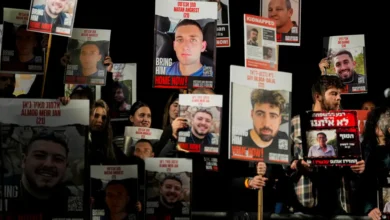Australian spy chief calls veteran military pilots training rivals as ‘lackeys’
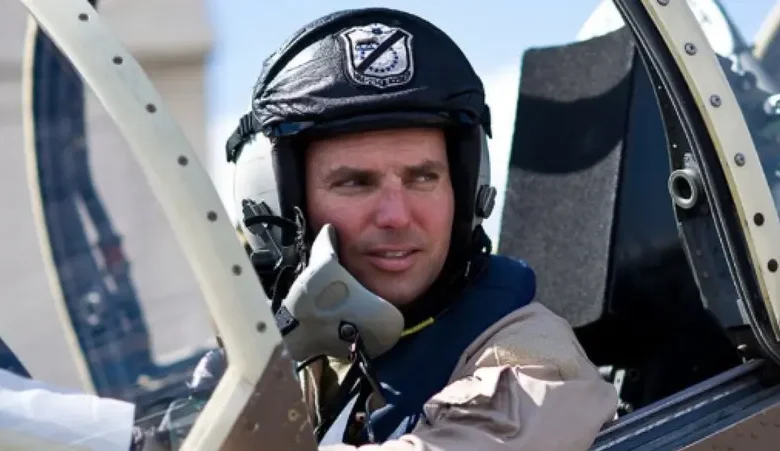
Australia’s spy chief has hit out at former military pilots who turn to working for authoritarian regimes, describing them as “lackeys, more ‘top tools’ than ‘top guns’” in his annual security threat assessment.
A former US marine pilot, Daniel Duggan, is fighting extradition from Australia to the United States, where he faces charges of training Chinese military pilots to land on aircraft carriers. He has denied breaking any law.
Britain has also cracked down on its former military pilots working for China.
In a speech in Canberra on Tuesday, the Australian Security Intelligence Organization’s director general of security, Mike
Burgess, said the agency had been tracking a “small but concerning number” of defense insiders willing to “put cash before country.”
Australians had been offered hundreds of thousands of dollars to help authoritarian regimes improve their combat skills, he said.
“These individuals are lackeys, more ‘top tools’ than ‘top Guns.’ Selling our warfighting skills is no different to selling our secrets –- especially when the training and tactics are being transferred to countries that will use them to close capability gaps, and could use them against us or our allies at some time in the future,” he said.
The ASIO and its partners had stopped some former defense staff travelling overseas to conduct such training, but in other cases “legal ambiguities have impeded law enforcement’s ability to intervene.”
Australia’s defense minister, Richard Marles, said this month the government would tighten the law.
In his annual speech, Burgess said more Australians were being targeted by espionage and foreign interference than at any time in the history of the spy agency, and it had disrupted a “major spy network” in the past 12 months.
“As we progress AUKUS, it’s critical our allies know we can keep our secrets, and keep their secrets,” he said, referring to a defense technology alliance between Australia, the United Kingdom and the United States to transfer nuclear submarine technology to Australia.
The media was also an espionage target, he said.
“We have seen repeated attempts to hack into scores of Australian media outlets –- so many, it appears to be a concerted campaign,” he said.
While the intent was not clear, ASIO assessed the hackers were looking for early warning of reports relevant to the
foreign government behind the hackers, and the identities of journalists’ sources, including critics of the foreign regime,
which he did not name.
Foreign intelligence services were also seeking to influence or coerce media through offers of funding, and ASIO had blocked what he said was a plot to exploit journalists through a funded overseas trip.
The Indo-Pacific region was home to the world’s fastest growing populations and economies, and also the fastest military
build ups, amid competition between Australia’s security ally the United States, and China, he said.
These dynamics were driving a thirst for information and covert influence in Australia by other countries, he said.
“They are using espionage to recruit to their own cause elected officials, public servants, well placed individuals in business, and leaders in our communities.”


